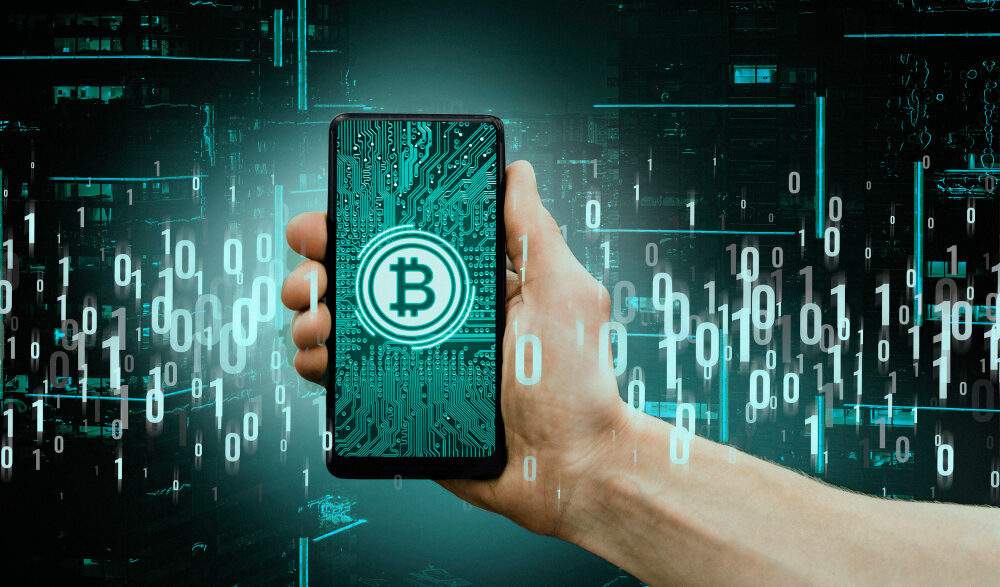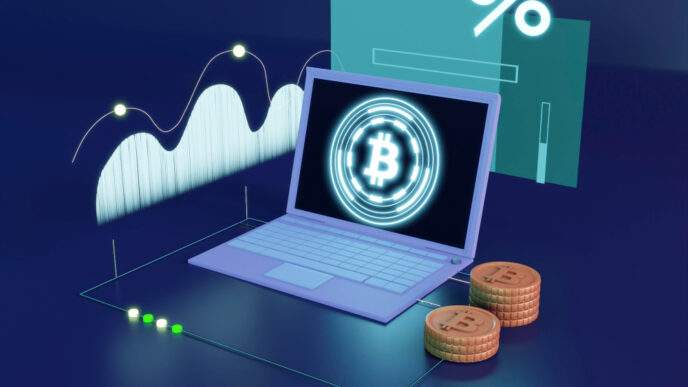In today’s digital era, access to financial services remains a privilege for many. Bitcoinization – the mass adoption of Bitcoin as a payment medium and store of value – represents a unique opportunity to democratize access to financial services (Read this article Can the Lightning Network Lead to “Hyperbitcoinization”? to know more about Bitcoinization). Telecommunications carriers occupy a strategic position in this transformation, especially in regions where traditional internet access is limited. However, this aspect remains largely unexplored. This article seeks to examine how these companies can catalyze this financial revolution by analyzing the Machankura case and the technical possibilities within current communication infrastructures.
The Success Sotry of Machankura
The Machankura project (8333.mobi) emerged to address a common challenge in various African regions: financial exclusion due to limited internet access. Created by South African developer Kgothatso Ngako, the service utilizes the USSD (Unstructured Supplementary Service Data) protocol, supported by virtually all mobile phones, to facilitate Bitcoin transactions via 2G and 3G cellular networks.
Machankura – derived from South African slang for “money” – functions as a custodial Bitcoin wallet. Through the USSD protocol, users can access the service by dialing short codes (*123*456789#, for example) or sending SMS messages to specific numbers. When the server receives the code or message, an interactive session between the parties (server-user) begins. This enables users to create Bitcoin wallets associated with their phone numbers, protected by multi-digit PINs.
Once registered, users receive a Lightning address (example: 1234567890@8333.mobi) that can be used to receive Bitcoin from anyone worldwide. Users can also customize this address to a preferred username, further enhancing privacy.
Currently, Machankura is available in nine African countries, including Nigeria, Tanzania, South Africa, Kenya, Uganda, Ghana, and Malawi. The creator’s objective is to expand the service to all countries across the African continent in the coming years.
Why Lightning network? Please read this article Lightning Network vs. Traditional Bitcoin Transactions.
The Technical Foundations of Machankura’s Success – USSD
As mentioned, USSD is a protocol embedded in mobile networks and available on virtually all cellular devices. This choice proved crucial for the Machankura project, given that in Africa, more than half of phones sold are not smartphones. Additionally, this protocol offers critical technical advantages:
- Operates without requiring internet access, functioning in areas with poor connectivity.
- Universal compatibility with any mobile phone, including the most basic models.
- Provides real-time interactivity between users and the system.
- Features an intuitive interface already utilized for banking services, customer support, and self-service applications
These advantages have enabled Bitcoin to become accessible to a significant portion of the region’s population, with over 15,000 users, according to the Machankura project creator.
USSD and Connectivity Challenges
The primary technical limitation of USSD manifests in high-connectivity environments (4G, 5G, or higher). As established by the 3GPP (3rd Generation Partnership Project, organization for standardization of mobile networks), the protocol must be recognized by newer generations of cellular networks. However, this recognition requires a procedure known as inter-technology fallback. For instance, if a user is connected to a 5G network and streaming music, when accessing a USSD service, their connection will downgrade to a 3G (or 2G) network, inevitably interrupting media streaming execution.
IP Multimedia Subsystem (IMS): The Evolution in Telecommunications Services
The solution to connectivity issues with USSD resides within the IMS (IP Multimedia Subsystem), a subsystem within the standardized architecture of newer cellular networks (from fourth generation onwards). Its objective is to unify access and provision of multimedia services across both mobile and fixed networks. These services include:
- Voice services – such as Voice over LTE (VoLTE) and Voice over WiFi (VoWiFi)
- Video services – such as Video over LTE (ViLTE) and Video over WiFi (ViWiFi)
- Videoconferencing
- Instant messaging
- Streaming media
- Emergency services
- Interoperability between legacy networks
The New Era: USSI (USSD over IP)
USSI (USSD over IP) represents the solution for service continuity across 4G, 5G, and future networks when utilizing USSD services. This new protocol enhances service quality, increases simultaneous session capacity, provides additional features for recent devices, improves session security, and enables operation without requiring fallback procedures.
Strategic Opportunities for Carriers
Institutional Bitcoin adoption is already established, with integration into portfolios of mining companies, exchanges, automobile manufacturers (Tesla), investment funds (BlackRock), financial institutions (Galaxy Digital Holdings), technology companies (including MicroStrategy, MercadoLibre, and Brazilian Meliúz), and even nations such as El Salvador, the United States, and China.
With robust, secure, and extensive infrastructure, telecommunications carriers can implement complex and advanced Bitcoin-based financial services, demystifying its use and stimulating adoption. Strategic partnerships with exchanges and fintechs enhance integrated solutions for entrepreneurs and consumers, such as integration with Lightning Network nodes to enable rapid, low-cost transactions between IoT devices, machine-to-machine (M2M) applications, and point-of-sale (POS) terminals.
The competitive advantages of this approach include
- New Revenue Streams: Companies can collect fees from simple transactions and provide advanced financial services such as loans, insurance, and investments.
- Customer Retention: By offering innovative services, they can reduce customer churn.
- Vanguard Strategy: Strategic positioning in an emerging high-capitalization market
The Future of Bitcoinization in Telecommunications
The success of the Machankura project unequivocally demonstrates the potential of telecommunications as transformative agents in the mass adoption of Bitcoin. As the Bitcoin ecosystem consolidates and expands, it is essential that we recognize this opportunity not merely as a new business vertical but as an important step toward strategic positioning at the forefront of a global economic transformation.
Given the extensive reach of existing infrastructure, these carriers can become the primary catalyst for transforming the lives of the unbanked in an unprecedented manner. As we have seen, Bitcoin is no longer just a trend; it is a reality. The natural consequence of this reality is bitcoinization, and we have the opportunity to be at the forefront of this emerging paradigm.
















